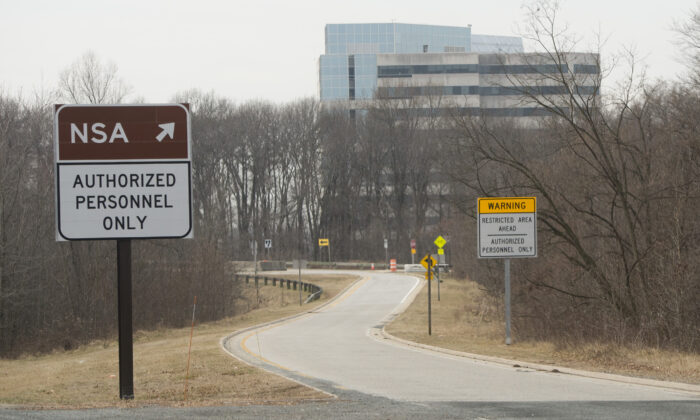The National Security Agency (NSA) wants to keep the authority to collect phone records of international terrorism suspects and of the people the suspects call, despite having shut down the program due to multiple issues. Moreover, recent NSA testimony to Congress indicated that those issues may well reemerge if the agency decides to restart the program.
The legal authority to use the program expires at the end of the year and several lawmakers have signaled opposition to its reauthorization.
Under the Foreign Intelligence Surveillance Act (FISA), the NSA can, among other things, get the phone records of anybody as long as it can clear the relatively low bar of a “reasonable articulable suspicion” that the person is an international terrorist. The law further allows collection of phone records of anybody called or messaged by the original target under the so-called “two hop” rule. The records only include metadata, such as the phone numbers called, date and time of the calls or text messages, and the calls’ duration. Content of the calls or texts isn’t included. The NSA submits the targets to the secret FISA court, which, upon approving them, issues an order to the phone companies to hand over the data.
In June 2018, the NSA announced that there were some “technical irregularities” in the data that phone companies gave it and that, as a result, the agency was given some records it wasn’t legally authorized to get.
Unable to filter what it wasn’t supposed to have, the NSA deleted all of the records obtained since 2015. It only kept records that were part of its intelligence reports and checked to make sure that those were obtained legally, according to an April 2019 report by the Office of the Director of National Intelligence (DNI) (pdf).
After the deletion, the NSA asked the phone companies again for records on all the previously approved targets and added some new targets. By the end of the year, it collected over 400 million records that involved more than 19 million phone numbers. Not all of those phone numbers belonged to Americans, the report noted.
“The root cause of the specific problem that led to the deletion was addressed at that time,” the DNI report said.
Yet in October 2018, the NSA found a similar problem again. It turned out it was sent “erroneous” records than it wasn’t authorized to get, according to documents obtained by the American Civil Liberties Union under the Freedom of Information Act.
The NSA said the records provider fixed the error.
In March 2019, Luke Murry, national security adviser to Rep. Kevin McCarthy (R-Calif.), revealed in a LawFare podcast that the NSA hasn’t been using the program for six months.
The DNI confirmed shuttering of the program in a letter to the top lawmakers in the Senate intelligence and judiciary committees in August (pdf).
“This decision was made after balancing the program’s relative intelligence value, associated costs, and compliance and data integrity concerns caused by the unique complexities of using these company-generated business records for intelligence purposes,” said the letter obtained by The New York Times.
Still, the administration asked for the program to be reauthorized.
During a Nov. 6 hearing by the Senate Judiciary Committee, when asked how the NSA solved the compliance issues, NSA official Susan Morgan said that “the compliance problems associated with this particular program have been solved as the program is shut down.”
That appears to leave open the likelihood that, if the NSA decides to restart the program sometime in the future, the problem will resurface again.
Morgan said “there has been value” to the program, but wouldn’t say in an open hearing if it materially contributed to the prevention of any terrorist attacks, noting that this information is classified.
She acknowledged that “currently, absolutely the value does not outweigh the cost,” but still argued it should be reauthorized, arguing that the NSA would “want to have the agility to use it should it be valuable moving forward.”
Sen. John Cornyn (R-Tex.) seemed supportive.
“Congress is not particularly nimble when it comes to reauthorizing new laws so I think we ought to be very careful about letting this one lapse,” he said.
Others disagreed.
“Why would we reauthorize a program that the Director of National Intelligence admitted does not work?” said Sen. Mike Lee (R-Utah) in an emailed statement to The Epoch Times. “How can we explain to the American people our support of a program that the government has admitted infringes on their privacy? I cannot support reauthorization of this program without major changes.”
Another two witnesses at the hearing were asked how many times the program has been used in criminal investigations or prosecutions by the FBI or the Justice Department (DOJ).
Brad Wiegmann, deputy assistant attorney general in the DOJ’s National Security Division, said he was aware of one case.
Michael Orlando, FBI deputy assistant director, said he wasn’t aware of any.
Even if the program lapses, the government would still have other ways to obtain phone records of suspected terrorists. Those means, however, don’t offer the second “hop,” according to a Nov. 7 article by George Croner, senior fellow at the Foreign Policy Research Institute.
“Stay tuned because, for now, the 2019 reauthorization debate is only one act in an ongoing drama that has brought unprecedented attention to the Foreign Intelligence Surveillance Act,” he said.
The NSA declined to answer emailed questions.
This article is from the Internet:NSA Wants Option to Restart FISA Phone Metadata Collection, Despite Its Problems
